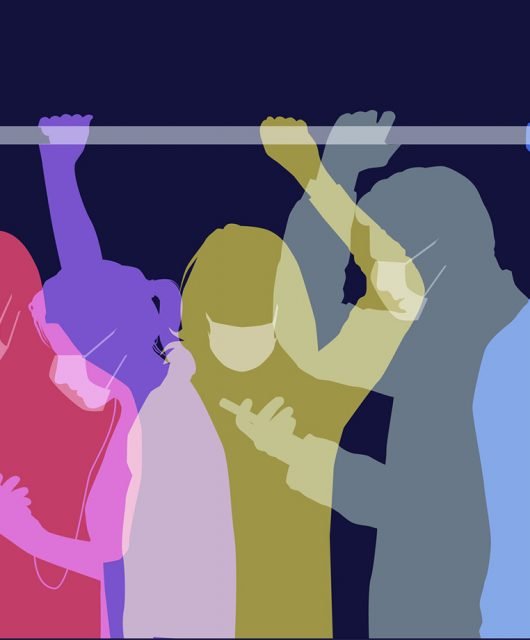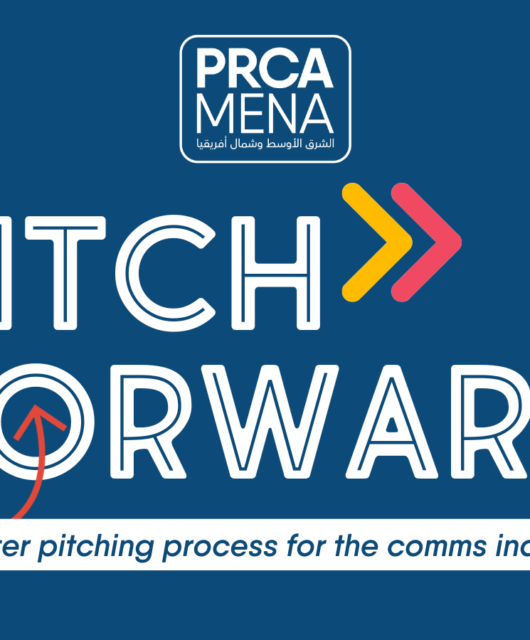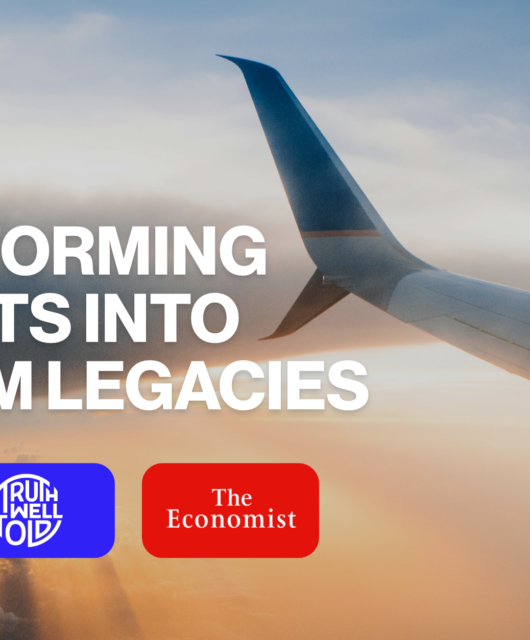Chef Karim Bourgi and MullenLowe MENA thinks the internet will be a much better place if it were to be sugarcoated.
Dubai: The internet could aptly be described as the cruellest playground in the world 😢 Where trolls bully perfect strangers freely and without consequences or remorse. And, the victims of their hate messaging and body shaming are left to suffer Low self-esteem, severe depression, eating disorders, lower academic scores, long-term psychological ailments and, in more extreme cases, inflict self-harm. Some retaliate through violence or sadly even take their own lives. Well, this is the dark side of social media.
However, there is nothing that a giant piece of chocolate cannot solve, and that is what Dubai based Chef Karim Bourgi and MullenLowe MENA believes. Bourgi is a Lebanese pastry chef and chocolatier trained at Le Cordon Bleu in Paris and runs a trendy Dubai-based dessert shop, KAYU. In partnership with Mullenlowe, he aims to raise awareness of the effects of body shaming, hate messaging, and cyberbullying through uniquely crafted and designed chocolates.
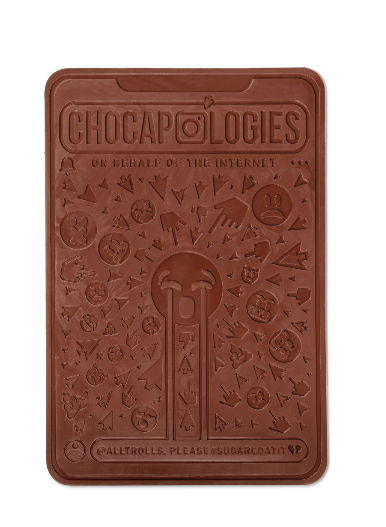
Together, they have handcrafted not one but three uniquely designed Chocapologies to raise awareness on the effects of body shaming, hate messaging, and cyberbullying. These are gorgeous sugarcoated apologies with a strong belief that the internet will be a better place if we all were to #SugarcoatIt. MullenLowe and Bourgi have sent these Chocapologies to celebrities, influencers, gamers and people who have been victims of trolling. Recipients, in return, have gone ahead and shared their stories on their social media profiles to raise awareness and encourage people to #SugarcoatIt. The campaign is running on popular social media platforms and has amassed over 261 million (and counting) people. It is well on its way to getting more eyeballs and traction in the coming few days. What started as an initiative has now snowballed into a massive campaign, garnering positive sentiment and love for the victims of trolling. Chocapologies is making the internet sweeter already!
The Chocapologies campaign is also encouraging people to share whether they think the internet owes them an apology by DMing and sharing how they have been trolled on @chocapologies Instagram account for a chance to receive a giant bar of 🙏 Chocapologies – on Behalf of the Internet🙏
But why chocolate, you may ask?
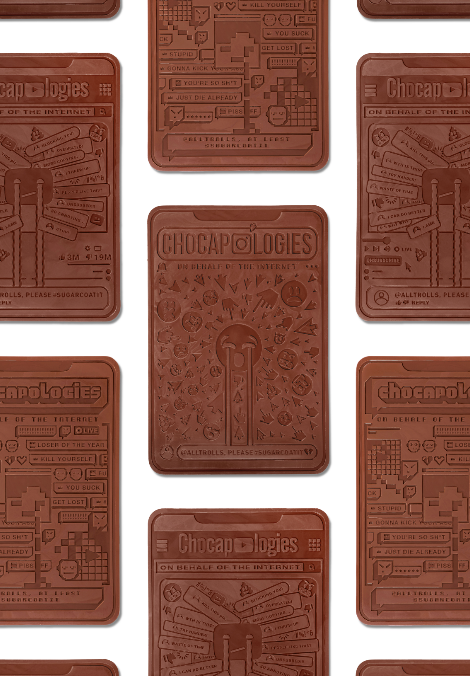
Well, simply because chocolates are the finest creation of humankind.
It’s scientifically proven that chocolate boosts the production of feel-good chemicals called endorphins.
Endorphins bind with opiate receptors in the brain leading to feelings of euphoria. They also reduce pain and diminish the adverse effects of stress.
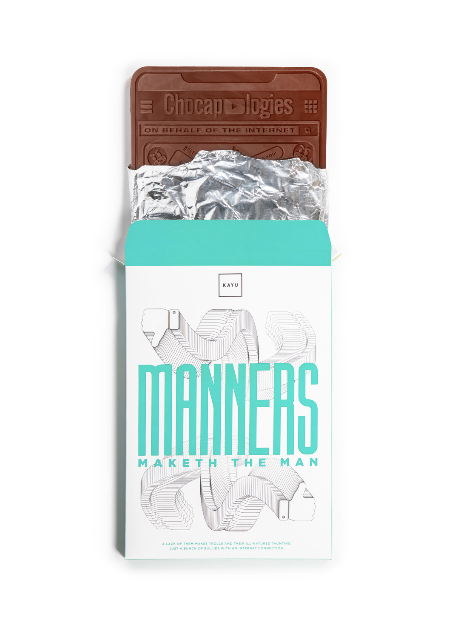
Chocolate is a good source of tryptophan, an amino acid precursor to serotonin, the neurotransmitter of happiness and positive mood.
Chocolate is also the primary food source of anandamide, a naturally occurring compound called the “bliss molecule.” Do we need more reasons?
With this campaign, we are trying to shed light on the fact that 61% of teens who report being bullied reveal it was because of their appearance.

The impact of body shaming (without the sugarcoating) could be dangerous. Eating disorders, crushed self-esteem and broken confidence are just the start. Studies report that being body-shamed has short and long-term psychological and physical health consequences that can lead to severe depression or worse.
We also know that 80% of people have encountered hate speech online and 40% have felt attacked or threatened via Social Network Sites. The impact of online hate messaging (without the sugarcoating) can lead to offline hate crimes. Words, we forget, can cut just as deep as knives. Many young people who suffer abuse online due to their sexual orientations, religions or races have cut their own lives short.
Today, 3 out of 5 children are bullied on social media platforms. What is extremely sad is that 7 in 10 young people experience cyberbullying before they hit the age of 18. And this can have lasting effects on them. The impact of cyberbullying (without the sugarcoating) include depression, low self-esteem, sleep and eating disorders, lower academic scores, and victims of bullying in more extreme cases commit suicide or retaliate with violence.
Some of the other facts/stats include: Victims of cyberbullying are 1.9 times more likely to commit suicide. 24% have contemplated suicide after continuous cyberbullying. Of those bullied last year, 37% developed social anxiety, while 36% fell into depression.
Due to the above statistics and consequences, it is crucial to bring the issue to the limelight and apologise on behalf of the internet because it won’t. And like Karim Bourgi, all we ask of all trolls is to at least #SugarcoatIt!

